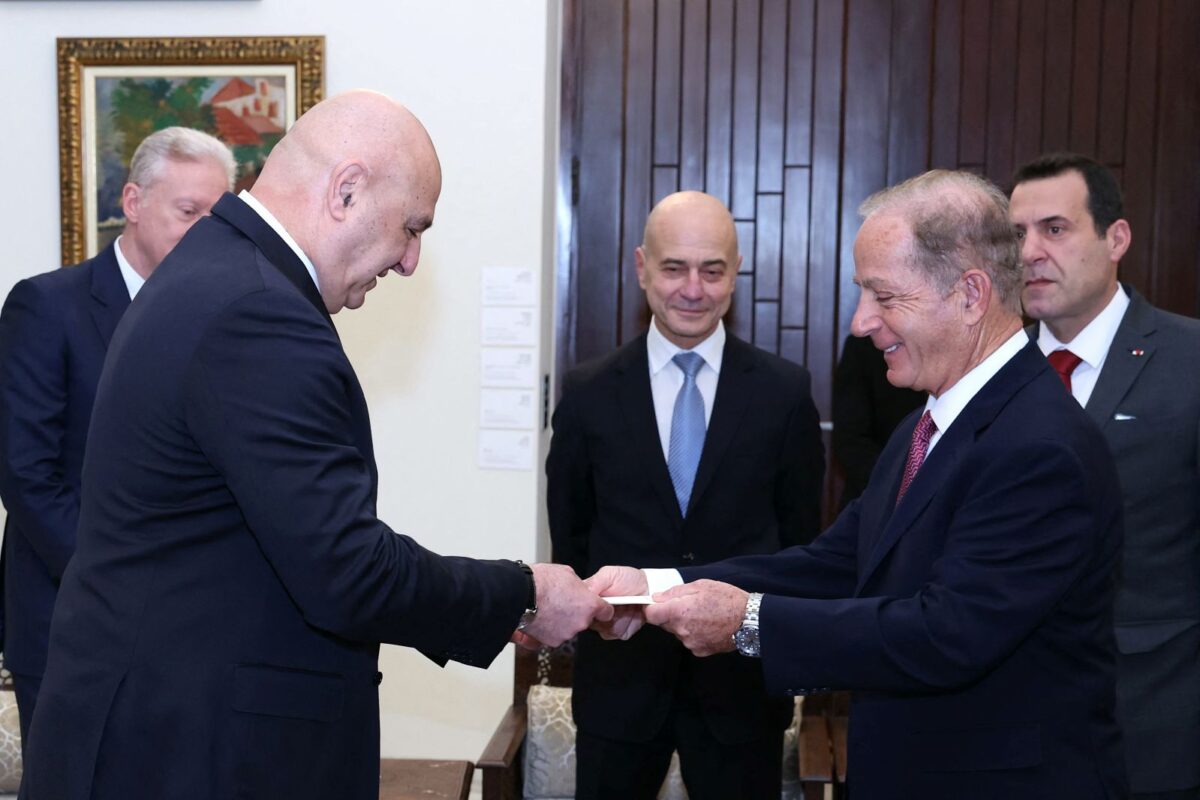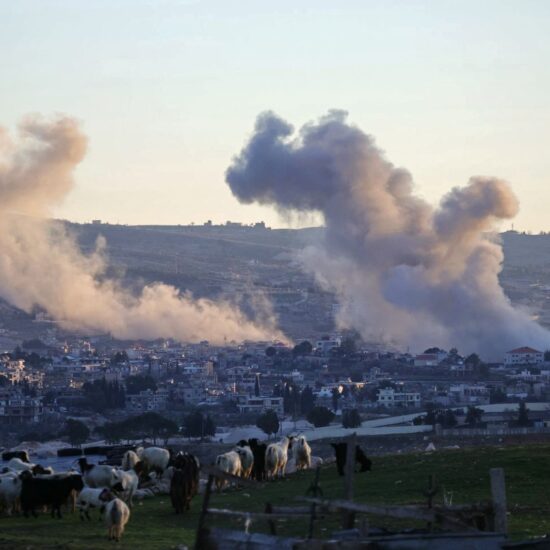
The newly appointed U.S. ambassador to Lebanon, Michel Issa, has arrived in Beirut on Friday, stepping into the role previously held by Ambassador Lisa Johnson.
Issa brings with him a profile that stands apart from the traditional diplomatic frame: a former banker and businessman, he was born in Beirut and spent part of his childhood here before building his career in the United States.
In a statement shared with the media, the U.S. Embassy in Beirut said it was “pleased to announce the arrival of Ambassador-designate Michel Issa to Lebanon on 14 November,” marking the beginning of a new chapter in Washington’s diplomatic presence at a critical moment for the country.
On Monday, the new U.S ambassador to Lebanon arrived at the Presidential Palace, where he was received with official honors before presenting his credentials to President Joseph Aoun.
President Aoun accepted Michel’s credentials, as the ambassador conveyed U.S. President Donald Trump’s greetings and Washington’s commitment to strengthening and expanding American-Lebanese relations. Aoun, in turn, wished Michel success in his new post.
A Businessman-Diplomat in a Political Role
Michel’s appointment is in line with former President Donald Trump’s preference for envoys drawn from outside the traditional diplomatic corps. He brings an unconventional profile to the post. Before entering the diplomatic world, he built a distinguished twenty-year-old career in banking, specializing in currency trading, trading-floor management, and leading credit and compliance initiatives across major financial hubs.
His professional trajectory later took an unexpected turn: after retiring from the financial sector in 1999, he pivoted toward his personal passion, the automotive industry, launching what would become a successful second career.
His arrival in Beirut comes as Lebanon grapples with deep economic and political strain, and his background in finance and business is likely to shape expectations around how Washington engages with the country’s unfolding crises.
Throughout his career, he has provided extensive counsel on corporate restructuring, recovery strategies, and bankruptcy processes, expertise that positioned him as a sought-after advisor during periods of economic instability.
His professional path has included senior leadership roles such as CEO, COO, and CFO, giving him a comprehensive understanding of both strategic and operational management.
His appointment has raised questions about its significance and whether it signals any shift in Washington’s approach to the Lebanese file.
Few analysts expect Issa’s arrival to dramatically alter the course of events in Lebanon. Washington’s broader strategy toward Beirut has remained consistent and is unlikely to be rewritten overnight.
Still, Michel’s extensive background in finance, along with his personal familiarity with Lebanon’s landscape, may influence how the U.S. manages the economic dimension of its engagement. His networks and experience could offer added momentum to Washington’s push for proper stabilization and structural reform, though any impact is expected to remain within the parameters of U.S. strategic objectives.
Ultimately, while Michel’s appointment introduces a new style and skill set to the embassy, it does not redefine the broader American agenda in Lebanon. This agenda extends far beyond the influence of any individual envoy.
With Michel now appointed as a fully empowered ambassador in Beirut, responsibility for the Lebanese portfolio will shift squarely onto his desk after months of being dispersed among several U.S. officials.
Looking ahead, expectations surrounding Lebanon’s future remain tightly tied to the broader regional landscape.
For local political analysts, any assessment of Issa’s mission must be viewed through this larger, more complex context, though several potential scenarios can already be discerned, including economic pressure given his banking background, through placing significant emphasis on pushing for long-delayed economic reforms in order to shift Lebanon away from empty commitments and toward enforceable policy change.
Secondly, increased pressure on Hezbollah as Washington’s priority of curbing Hezbollah’s military capabilities remains unchanged, and Michel’s arrival could bring a renewed wave of diplomatic and economic pressure on the group by following the broader U.S strategy that is predetermined by Washington.
The new U.S ambassador has arrived in Lebanon at a moment of heightened tension along the southern border. Israel continues to violate the U.S.-brokered ceasefire reached on 27 November 2024, an agreement that followed more than a year of conflict, which began with Israel’s military campaign in October 2023 and escalated into a full-scale war by September 2024. That war left more than 4,000 people dead and around 17,000 wounded.
Experts in the field see his economic and financial expertise, the same qualities that reportedly strengthened his ties to former President Donald Trump, as giving him a far more consequential role on the economic front. That skill set could have a direct and potentially decisive impact on Lebanon’s financial future.
It is important to remember that the country’s layered internal crises and unstable regional and local political environment will inevitably limit how far things can be developed.
Just on Monday, Naim Qassem Hezbollah’s Deputy Secretary-General, defended Al-Qard Al-Hassan, Hezbollah’s financial institution, describing it as a “social safety net” providing support to ordinary citizens during a severe economic crisis. He urged the government and the Central Bank governor to halt what he called restrictive measures against the organization.
Naim accused Washington of being “an aggressor and sponsor of Israeli aggression,” and blamed the United States for Lebanon’s economic collapse since 2019.
According to Naim, U.S. pressure contributed to the currency crash, the banking crisis, and the obstruction of regional energy supply schemes. “If you want to understand Lebanon’s biggest catastrophes,” he said, “look for America.”
Overall, the new ambassador is anticipated to play a role in shaping U.S. political and economic engagement in Lebanon, at a time when American strategy in the Middle East is being reshaped under the returning Trump administration.
Rodayna Raydan is a Lebanese-British journalist. You can follow her on Twitter @Rodayna_462








